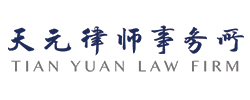There’s a notable uptick in the regional adoption of carbon financial products as market tools rapidly advance
Carbon finance plays a pivotal role in realising the “dual carbon” target and has attracted much recent attention. It was also heatedly discussed at China’s Dual Carbon Technology and Emerging Service Industry Development Forum, held at the China International Fair for Trade in Services in 2023.
Concepts
In 2016, seven departments – including the People’s Bank of China – jointly issued the Guidelines for Establishing the Green Financial System, stating that carbon financial products and derivatives include carbon forwards, carbon swaps, carbon options, carbon leases, carbon bonds, carbon asset-backed securities and carbon funds.
In April 2022, the China Securities Regulatory Commission released a financial industry standard, the Carbon Financial Products, which formally stipulates carbon finance concepts, product classifications and implementation requirements. This signified the entry of such products into a standardised era in China.
The standard classifies three categories: (1) carbon financing instruments; (2)carbon trading instruments and financial derivatives; and (3) carbon supporting instruments.
Products and domestic market

Partner
Tian Yuan Law Firm
Tel: +86 138 1009 6059
E-mail: chensheng@tylaw.com.cn
Carbon markets in pilot regions. Before the release of the standard, there were carbon markets in several regions. Tianjin and Chongqing were limited to the financing of carbon emission quota pledges. However, the carbon markets in the pilot regions of Beijing, Shanghai, Shenzhen, Guangzhou, Hubei, Fujian and Sichuan experienced rich practices in forming carbon financial instruments.
Financial market players. In addition to financial products in regional carbon markets, in recent years there have been activities by emission control entities and other financial market players (including banks, brokers, trust companies, fund managers, other intermediaries and investors) focusing on the carbon trading market, low-carbon and green investment, financing and related services. The carbon financial instruments with considerable practice in the domestic market are set out below.
Carbon financing instruments
Financing instruments with carbon assets as collateral include carbon asset pledges, transfers and guarantees, and have become the mainstream carbon financial products due to their simple transaction structure.
For example, in 2021, the Hubei branch of the Agricultural Bank of China issued a pledge loan of RMB10 million (USD1.4 million) for carbon emission rights to the Hubei Sanning Chemical Industry, which became the first pledge loan for carbon emission rights in the national carbon trading market.
Carbon bonds are bonds issued by various entities for investment in emission reduction projects. Currently, most carbon bonds issued in China are carbon-neutral green bonds, which also include some asset-backed securities investing in carbon-neutral themes such as emission reduction projects.
Carbon asset custody, in the narrow sense, mainly refers to the carbon emission quota custody in which a custodian institution is commissioned by emission control entities to hold, collectively manage and trade carbon assets.
In a broader sense, it also includes China Certified Emission Reduction (CCER) development, carbon asset account management, carbon trading commission and execution, low carbon project investment and financing, and related carbon financial consulting services.
The current custodian business for carbon assets in China is mainly the custody of emission quotas; the first deal was carried out in December 2014, facilitated by the Hubei Carbon Emission Trading Centre.
Trading instruments/financial derivatives

Partner
Tian Yuan Law Firm
Tel: +86 134 6670 4734
E-mail: limingyue@tylaw.com.cn
In terms of financial products, carbon trading instruments mainly include carbon options, carbon forwards, carbon futures and carbon swaps. Subject to market policies, these instruments are currently confined to practice in pilot regional markets.
Carbon supporting instruments
A carbon index is statistical data compiled to reflect the price change and trend of the overall carbon market or a certain type of carbon asset. Examples are the China carbon index system, an observational index for trading venues introduced by the Beijing Green Exchange, and the carbon price index of Fudan, a predictive index established by Fudan University as a third party.
Carbon insurance refers to insurance products developed to reduce default risks during the development or trading of carbon assets. Currently, these products mainly include carbon delivery insurance, carbon credit price insurance and carbon asset financing guarantees. The first carbon insurance deal was settled in Hubei in November 2016, with the participation of the Hubei Carbon Emission Trading Centre, the Hubei branch of Ping An Insurance and Huaxin Cement Group.
A carbon fund includes various asset management products (non-principal-protected wealth management products of banks, capital trusts, asset management products issued by securities and futures institutions, and private equity funds) established for investment in the carbon market, greenhouse gas emission reduction, new energy or support for low-carbon and energy saving industries, and the realisation of the dual carbon target while providing investors with returns.
The author’s team assisted the National Energy Group’s subordinate fund in establishing the Guoneng Green and Low-carbon Development Investment Fund, a carbon fund product with a mother fund size of RMB6 billion, focusing on investment in the green and low-carbon industry.
Future expectations
All in all, despite the fledgling carbon financial market in China and systematic support policies and corresponding measures pending further perfection, the pilot regional markets, emission control enterprises, financial institutions and other participating entities have provided valuable experience through meaningful explorations, innovations and practices to standardise and improve the domestic carbon financial system, while the national authorities are steadily and rapidly advancing the construction of market financial tools.
The future development of carbon financial instruments and markets is optimistic.
| Classification | Instruments | Regional | markets | |||||||
|---|---|---|---|---|---|---|---|---|---|---|
| Beijing | Shanghai | Shenzhen | Guangzhou | Hubei | Fujian | Sichuan | Tianjin | Chongqing | ||
| Carbon financing instruments | Carbon asset pledge | √ | √ | √ | √ | √ | √ | √ | √ | √ |
| Carbon asset repurchase/ reverse repurchase | √ | √ | √ | √ | √ | √ | √ | |||
| Carbon bonds | √ | √ | √ | |||||||
| Carbon custody | √ | √ | √ | √ | ||||||
| Carbon trading instruments/ financial derivatives | Carbon options | √ | ||||||||
| Carbon futures | ||||||||||
| Carbon forwards | √ | √ | √ | √ | √ | √ | ||||
| Carbon swaps | √ | |||||||||
| Carbon structured deposit | √ | √ | √ | |||||||
| Carbon loan | √ | |||||||||
| Carbon supporting instruments | Carbon index | √ | √ | |||||||
| Carbon insurance | √ | |||||||||
| Carbon fund | √ | √ | √ | |||||||
| Carbon trust | √ |
Chen Sheng is a partner at Tian Yuan Law Firm. He can be contacted by +86 138 1009 6059 or by email at chensheng@tylaw.com.cn
Li Mingyue is a partner at Tian Yuan Law Firm. She can be contacted by +86 134 6670 4734 or by email at limingyue@tylaw.com.cn

10/F, Tower B
China Pacific Insurance Plaza
28 Fengsheng Hutong
Beijing 100032, China
Tel: +86 10 5776 3888
Fax: +86 10 5776 3777
www.tylaw.com.cn












